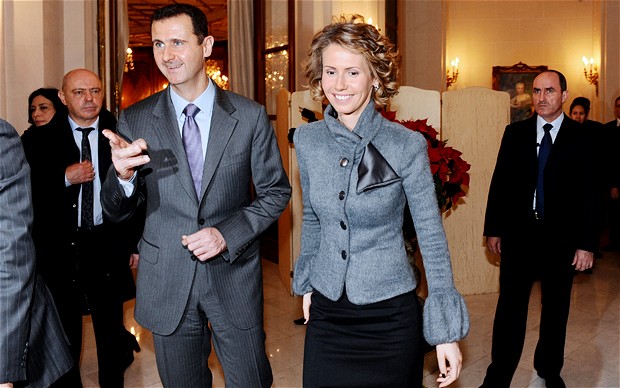When David Cameron announced in May 2013 that he was doubling Britain’s military support for Syrian opposition fighters, he did so in the hope that they would ultimately defeat the regime of President Bashar al-Assad.
Speaking at the White House following a summit with Barack Obama to discuss the Syrian crisis, the Prime Minister said Britain would provide the Syrian Free Army (SFA) with non-lethal equipment, such as armoured vehicles, body armour and power generators, to “put pressure on Assad so he knows there is no military victory”.
Back then, the SFA, an eclectic mix of moderate opposition activists, was the group the West most wanted to prevail in the conflict. This was in spite of the reality that it had little chance of competing against the better resourced and more fanatical groups such as Islamic State (Isil) and the Nusra Front.
Less than two years later, Britain and its allies have all but given up on defeating the Assad regime. Instead their main objective now is tackling the infinitely more malevolent threat posed by groups like Isil. Consequently, rather than helping the SFA to defeat Assad, all our efforts are now being channelled into helping the SFA become a force that is capable of doing battle with Isil.
According to General Raymond Odierno, the head of the US Army, work is commencing this month on training a 5,000-strong force of Syrian fighters at camps in Jordan and Turkey. The US military is spending $500 million on the programme in which hundreds of carefully vetted fighters will undertake rigorous training lasting between four and six weeks, thereby building a force that Gen Odierno hopes will have the ability to open a new front against Isil. Overthrowing Assad’s regime, meanwhile, is no longer deemed to be the main priority.
According to Con Coughlin, the Telegraph, this remarkable turn-around in Washington’s policy is yet another sad reflection of the complete hash Western politicians have made of responding to the many challenges created by the Syrian conflict, which has now claimed in excess of 200,000 lives and driven millions from their homes. Having initially supported calls for the Assad regime to be replaced by a secular, democratically elected regime, they now find themselves desperately trying to prevent the country from being overrun by Islamist fanatics. That is precisely the same objective that Assad is trying to achieve.
John Kerry, the US Secretary of State, speaking at the recent security conference at the Egyptian resort of Sharm el-Sheikh, conceded that “we have to negotiate in the end” with Assad. Negotiating with Assad represents a U-turn on the part of the Obama administration, which has previously made numerous demands for the Syrian leader’s removal. But now that defeating Isil is deemed to be a far more pressing priority than the Ba’athist dictator’s overthrow, it makes sense that, at the very least, Western politicians should start to acknowledge where their true priorities lie.
Across the border in neighbouring Iraq, this confluence of interests has resulted in the US-led military coalition finding itself in the distinctly unfamiliar position of fighting alongside Iran’s Revolutionary Guards as they attempt to drive Isil out of Tikrit, the former stronghold of Saddam Hussein.
Drawing comparisons between the anti-Isil military campaigns in Iraq and Syria is difficult, not least because the Iraqi government of prime minister Haider al-Abadi is technically an ally of the West, whereas the Assad regime has never enjoyed that privilege.
In Iraq, Western commanders can tolerate working with Iran on the grounds that they are providing support for the democratically elected government in Baghdad. No such arrangement could be justified in Syria.
That said, the fact that the West is also engaged in intense diplomatic activity with Iran on another pressing global security issue – namely Tehran’s controversial nuclear programme – does suggest it might still be possible to reach a similar accommodation with Damascus regarding Isil.
M. Al-Ibrahim

